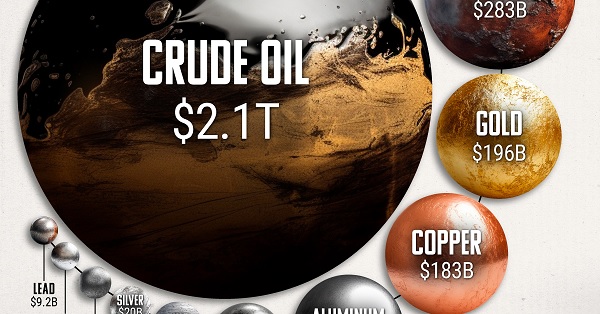
Crude oil stands as the most valuable commodity traded globally, exerting an unparalleled influence on economies, geopolitics, and daily life. Its value is derived from its crucial role as the primary energy source for the modern world. The importance of crude oil cannot be overstated; it powers vehicles, heats homes, generates electricity, and serves as a raw material for countless products, from plastics to pharmaceuticals.
The global economy is deeply intertwined with crude oil, as nearly every sector depends on it either directly or indirectly. Transportation, one of the largest consumers of energy, relies heavily on oil-derived fuels like gasoline, diesel, and jet fuel. Industrial processes, too, often require oil-based products, and the petrochemical industry uses crude oil as a key input for manufacturing a wide array of chemicals and materials. This widespread demand ensures that oil remains central to global trade and commerce.
One of the factors that contribute to the high value of crude oil is its price volatility. The price of oil is highly sensitive to geopolitical events, economic policies, and supply disruptions. For instance, tensions in the Middle East, a region rich in oil reserves, can lead to fears of supply shortages, driving prices upward. Similarly, decisions by the Organization of the Petroleum Exporting Countries (OPEC) regarding production levels can significantly impact global oil prices. This volatility makes crude oil a critical commodity not just for consumers but also for investors and traders, who seek to profit from price fluctuations.
The geopolitical significance of crude oil also adds to its value. Control over oil resources can translate into substantial political and economic power. Countries with large oil reserves, such as Saudi Arabia, Russia, and the United States, hold significant sway in international relations. Access to oil resources has been a driving factor in numerous conflicts and strategic alliances, underscoring the commodity's role beyond mere economics.
Furthermore, the economic impact of crude oil prices is profound. When oil prices rise, the cost of goods and services often increases due to higher transportation and production costs, leading to inflationary pressures. Conversely, falling oil prices can boost economic activity by reducing costs for businesses and consumers. This dual impact makes oil prices a key indicator of global economic health and a major consideration for policymakers.
In addition to its direct economic and geopolitical importance, crude oil plays a vital role in the transition to alternative energy sources. While the world is gradually shifting towards renewable energy, oil remains essential for the production and distribution of these new technologies. For example, the manufacturing of wind turbines, solar panels, and electric vehicles often involves oil-derived products. Moreover, the revenue generated from oil production is, in some cases, being used to fund investments in renewable energy, further highlighting oil's complex relationship with the future of energy.
In conclusion, crude oil's status as the most valuable commodity traded globally is a reflection of its critical importance to the functioning of modern society. Its role as a primary energy source, coupled with its economic, geopolitical, and strategic significance, ensures that crude oil remains at the center of global trade and finance. While the world is moving towards a more sustainable energy future, the current and future impact of crude oil on global affairs remains profound and far-reaching.